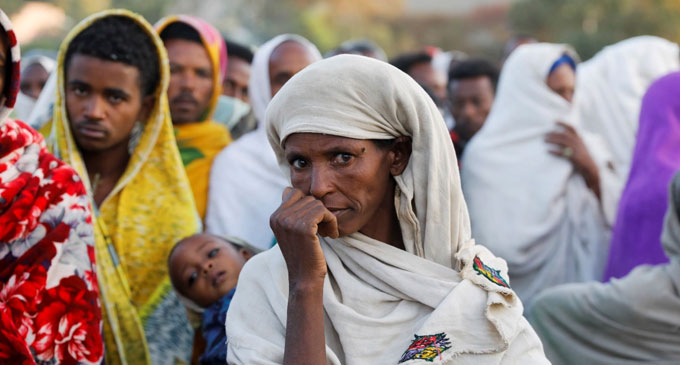(UTV | UNITED NATIONS) — The United Nations said Friday that more than 400,000 people in Ethiopia’s crisis-wracked Tigray region are now facing the worst global famine in decades and 1.8 million are on the brink, and warned that despite the government’s unilateral cease-fire there is serious potential for fighting in western Tigray.
The dire U.N. reports to the first open meeting of the U.N. Security Council since the conflict in Tigray began last November and painted a devastating picture of a region where humanitarian access is extremely restricted, 5.2 million people need aid, and Tigray forces that returned to their capital Mekele after the government’s June 28 cease-fire and exit from the region have not agreed to the halt to hostilities.
U.N. political chief Rosemary DiCarlo urged the Tigray Defense Force “to endorse the cease-fire immediately and completely,” stressing that the U.N.’s immediate concern is to get desperately need aid to the region.
Acting U.N. humanitarian chief Ramesh Rajasingham said the situation in Tigray “has worsened dramatically” in the last 2 ½ weeks, citing “an alarming rise in food insecurity and hunger due to conflict” with the number of people crossing the threshold to famine increasing from 350,000 to 400,000. With 1.8 million a step away, he said, some suggest “the numbers are even higher.”
“The lives of many of these people depend on our ability to reach them with food, medicine, nutrition supplies and other humanitarian assistance,” he said. “And we need to reach them now. Not next week. Now.”
The largely agricultural Tigray region of about 6 million people already had a food security problem amid a locust outbreak when Prime Minister Abiy Ahmed on Nov. 4 announced fighting between his forces and those of the defiant regional government. Tigray leaders dominated Ethiopia for almost three decades but were sidelined after Abiy introduced reforms that won him the Nobel Peace Prize in 2019.
No one knows how many thousands of civilians or combatants have been killed. DiCarlo said an estimated 1.7 million people have been displaced from their homes, and more than 60,000 have fled into neighboring Sudan. Though Abiy declared victory in late November, Ethiopia’s military kept up the offensive with allied fighters from neighboring Eritrea, a bitter enemy of the now-fugitive officials who once led Tigray, and from the Amhara region adjacent to Tigray.
In a stunning turn earlier this week, Ethiopia declared a unilateral cease-fire on humanitarian grounds while retreating from advancing Tigray forces. But the government faces growing international pressure as it continues to cut off the region from the rest of the world.

